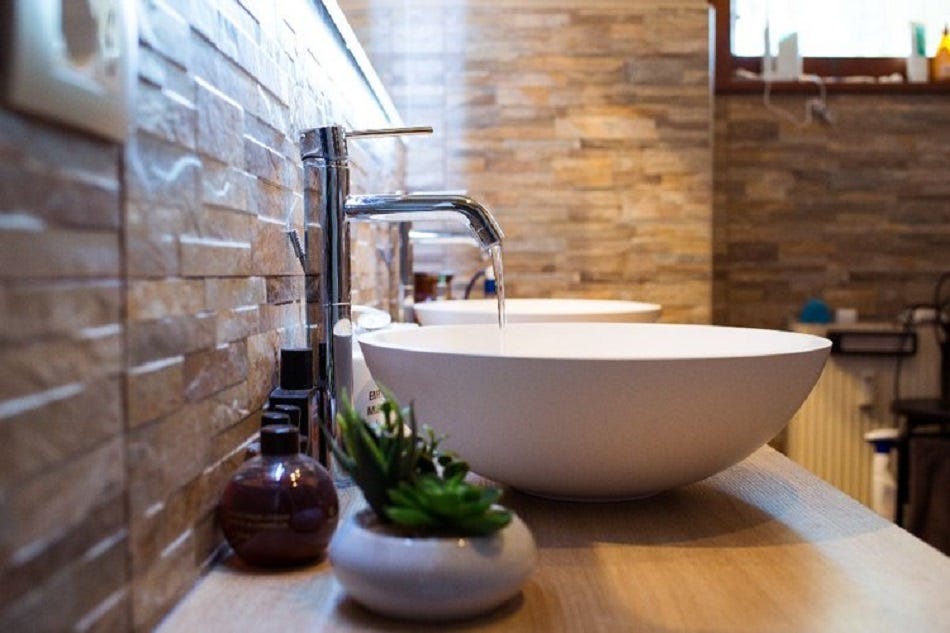Essential Bathroom Plumbing Tips for New Homeowners
Essential Bathroom Plumbing Tips for New Homeowners
Blog Article
Were you looking for resources around Essential DIY Bathroom Plumbing Tips Every Homeowner?

For new homeowners, understanding and maintaining bathroom plumbing can conserve both time and money by preventing pricey concerns down the line. Below are some essential restroom plumbing ideas to help you maintain every little thing running efficiently.
Acquaint Yourself with the Key Shut-Off Shutoff
Knowing where the major water shut-off shutoff lies in your home is vital. This permits you to promptly shut off the water system in case of major leakages or during pipes emergencies, protecting against considerable water damage.
Regularly Check for Leaks
Little leakages can cause big troubles. Consistently examine under sinks, around bathrooms, and near plumbing components for any signs of leakages. Look for moisture, small drips, or rust. Capturing and fixing leakages early can protect against more major damage and conserve water.
Don't Overlook Slow Drains Pipes
If your sink or bath tub is draining slowly, it's frequently a sign of an obstruction forming. Resolving this early can protect against a complete obstruction. Utilize a bettor or a plumbing technician's snake to remove particles. Prevent using chemical drainpipe cleansers as they can damage your pipelines over time.
Know What Not to Flush
Commodes are not waste disposal unit. Avoid purging anything apart from toilet paper and human waste. Items like wipes, feminine hygiene items, and cotton bud need to be disposed of in the trash to avoid blockages and sewage system backups.
Install Strainers in Drains
Location filters in your sink and bathtub drains pipes to capture hair and other particles before they enter your pipes system. Cleaning the filters consistently will assist stop build-up and keep water flowing freely.
Keep Your Water Heater
Guarantee your hot water heater is set to an ideal temperature level (commonly about 120 degrees Fahrenheit) to avoid hot and minimize energy usage. Flush the tank yearly to eliminate sediment buildup, which can minimize the efficiency and lifespan of your heating system.
Update Your Fixtures
If your home has older fixtures, consider updating to more effective versions. Modern commodes, showerheads, and faucets are developed to use less water while offering excellent pressure, which can significantly decrease your water costs and environmental impact.
Beware with Do It Yourself Plumbing Repairs
While it's appealing to take care of all home fixings on your own, be cautious with pipes. Some problems could require expert proficiency, specifically if they include main water lines or sewage system repair work. Working with a specialist can in some cases be extra economical than DIY, particularly if it protects against additional damages.
Prepare for Cold Weather
Shield your pipes from freezing throughout winter by insulating pipelines in unheated areas like cellars, attics, and garages. During severe chilly, allow cold water drip from taps served by revealed pipelines to help prevent cold.
Arrange Routine Maintenance
Take into consideration scheduling yearly inspections with a licensed plumbing professional. They can spot concerns that you may miss out on, such as surprise leakages or damage on pipes and components. Regular maintenance helps expand the life of your plumbing system and can avoid emergencies.
Conclusion
Comprehending and keeping your home's shower room pipes can avoid numerous usual issues. By adhering to these essential suggestions, you can guarantee your bathroom continues to be useful and reliable, conserving you time and money over time.
Essential Plumbing Tips for Homeowners: Keep Your Pipes Flowing Smoothly
As a homeowner, understanding the basics of your plumbing system can save you time, money, and a lot of headaches. Plumbing issues can range from minor annoyances like dripping faucets to major problems like burst pipes that cause significant damage. This guide provides essential tips to help you maintain your plumbing system and tackle common issues.
Understanding Your Plumbing System
Supply System: Brings fresh water into your home from a municipal source or a well. Drain-Waste-Vent System: Removes wastewater and vents sewer gases outside. Fixtures and Appliances: Includes sinks, toilets, showers, dishwashers, and washing machines. Basic Maintenance Tips
Regular Inspections: Periodically check for leaks, corrosion, and other signs of wear and tear. Look under sinks, around toilets, and near water heaters. Know Your Main Shut-Off Valve: In case of a major leak, you’ll need to shut off the water quickly. Ensure everyone in your household knows where the main shut-off valve is located. Prevent Frozen Pipes: In cold climates, insulate exposed pipes and let faucets drip during extreme cold to prevent freezing. Use Strainers: Install strainers in sinks and tubs to catch hair, food particles, and other debris that can cause clogs. Common Plumbing Issues and Solutions
Clogged Drains:
Prevention: Avoid pouring grease down the drain and use drain screens to catch debris. DIY Fix: Use a plunger or a plumbing snake to clear minor clogs. For stubborn clogs, a mixture of baking soda and vinegar can sometimes help. Leaky Faucets:
Prevention: Replace washers and seals regularly. DIY Fix: Turn off the water supply, disassemble the faucet, and replace worn parts.

Get Offer Report this page